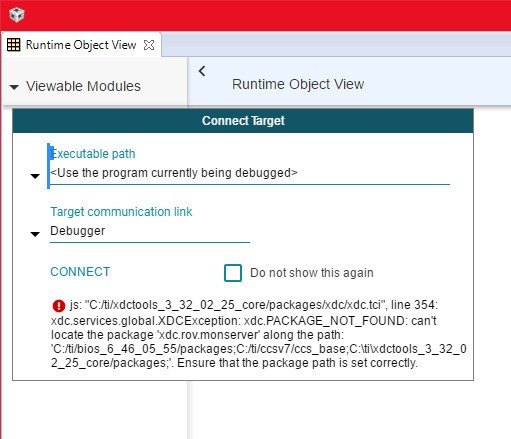Tool/software: Code Composer Studio
Hello,
This (the task name does NOT show up in the ROV):
https://e2e.ti.com/support/legacy_forums/embedded/tirtos/f/355/t/167143
I've already done everything it tells me. It's "closed" as solved, but it's not.
I am on Windows 10, 64 bit, Using CCS 7.2, and XDC 3_32_02_25 (the post claims it was fixed in XDC 3_25... )
I just blindly did this, whatever it is (because finding doc on this Java stuff in the CFG is nearly impossible)
Task.common$.namedInstance = true; Defaults.common$.namedInstance = true;
But that doesn't work either.
The code to create the task is:
Int main() {
Task_Handle flashtask;
Task_Params flashParams;
Error_Block flashErrorBlock;
char flashTaskName[12] = "Flash";
Error_init(&flashErrorBlock);
Task_Params_init(&flashParams);
flashParams.priority = 6;
flashParams.instance->name = flashTaskName;
flashtask = Task_create(FlashTask, &flashParams, &flashErrorBlock);
if (flashtask == NULL) {
UARTprintf("Network Task_create() failed!\n");
BIOS_exit(0);
}
So the string "flashTaskName" is persistent (never goes out of scope). But I never get a label.
There is a member flashParams.instance->_size but I have no idea what it is. I can't find anything on it. Is it supposed to be a string size? No one else is using it.
Ultimately, this project has over a dozen tasks, many created dynamically, so the "CFG" file is is of no value anyway.
When will this be fixed? Or documented correctly so we can know what to do?


